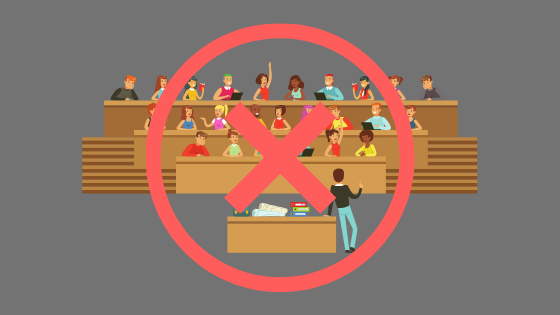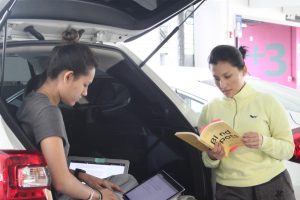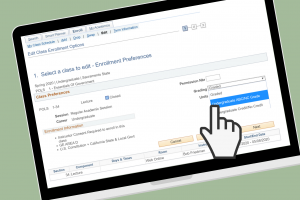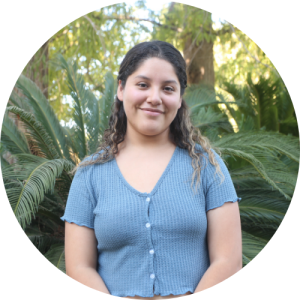‘It’s important to be flexible during this time’: Sac State professors on moving to online-only instruction
Professors remain positive despite shelter-at-home orders

Professors advocate for the best for their students while fulfilling their original course objectives before coronavirus concerns struck campus. Graphic in Canva.
April 30, 2020
As students try to find their momentum with online-only classes, Sacramento State professors are attempting to do the same.
While there was worry that professors would not be able to smoothly transition to online courses, electrical engineering professor Perry Heedley said that the change has not been much of a challenge.
“Since I was already teaching hybrid classes, the move to fully online hasn’t been hard for me,” Heedley said via email. “Fortunately, I had all the technology needed for this: laptop computer, document camera, etc. The one exception is for my laboratory course, which has always been taught face-to-face.”
The hardest roadblock he faced was getting the right electronic equipment for his students, because the class could not be executed without it.
RELATED: VIDEO: Sac State professors speak on struggles with online courses
“Fortunately, most of them already had the test equipment they need to perform the labs at home from previous classes they’ve taken, but the components needed to build circuits were harder to get to them,” Heedley said.
Heedley said that he was able to get the equipment out to students through the department, or that his students bought their own equipment online.
Heedley said his students responded well to the change, but that “time will tell” for the rest of the semester.
Gilbert Clements, a student of Heedley, said via email that at first, he felt optimistic about the online change because he’s had hybrid schedules in the past, but as the weeks went on, he’s struggled to keep up with the work.
“First, I forgot one assignment and emailed it in late without making excuses, because I don’t usually miss assignments so why beg for forgiveness,” Clements said. “Then, I still missed several other due dates and had to find new ways to be more vigilant and responsible.”
With school work and personal events, like dealing with a newborn at home and his mother testing positive with COVID-19, stacking on top of him, Clements said he’s still trying his hardest to finish off the semester.
“Even though I felt like I was in better circumstances and this semester was more convenient than last semester, it has been difficult,” Clements said. “I can only imagine the troubles others have too.”
Sharon Furtak, an associate professor in psychology, shared the same sentiment as Heedley in having a positive response from her students during this unprecedented change of curriculum. She created an anonymous survey for students to voice concerns about online classes but may not feel comfortable speaking up during a Zoom lecture.
“My hope is to get some good pointers on what students are finding helpful or not helpful in facilitating learning,” Furtak said. “I want to make adjustments quickly so that we can maximize the rest of the semester together.”
Part of those adjustments include allowing students to turn in second submissions on assignments in order to gain more points. But, she said she will not cut any assignments or exams from her original syllabus.
“I worry that by cutting any assignments or exams it increases the value of the remaining assessments,” she said. “I have always found that managing students’ stress around grades needs to be balanced with the students providing evidence of attainment of learning outcomes by way of assessment.”
“It’s important to be flexible during this time,” said Veronica Hicks, an assistant professor in art education, regarding accommodations for students on school work.
She said her biggest roadblock has been making sure her students have reliable internet and technology to complete their work.
“Luckily, the IRT service desk has been stepping up when we need them the most by providing routers and computers,” Hicks said. “We couldn’t be successful without them.”
Despite the efforts of IRT, Kathy Jamieson, a kinesiology professor, said there are still students and faculty who are deeply affected by the change.
“I am concerned about the disproportionate way this pandemic, and our response to it, will affect our students and colleagues (especially first-gen, students of color, and all lecturer and tenure-track faculty) who are already often among the most vulnerable in terms of access to basic resources,” Jamieson said via email.
She said her best days are when she gets positive feedback when checking in with her students. She also said that Sac State is doing a good job helping students and staff stay on track.
“I believe in our students, and I am counting on our students to learn more than core content in this moment,” Jamieson said. “But also to imagine more humane institutions where they will put their Hornet education to use to serve fellow humans in ways far better than we had imagined prior to this pandemic experience.”

































































































































